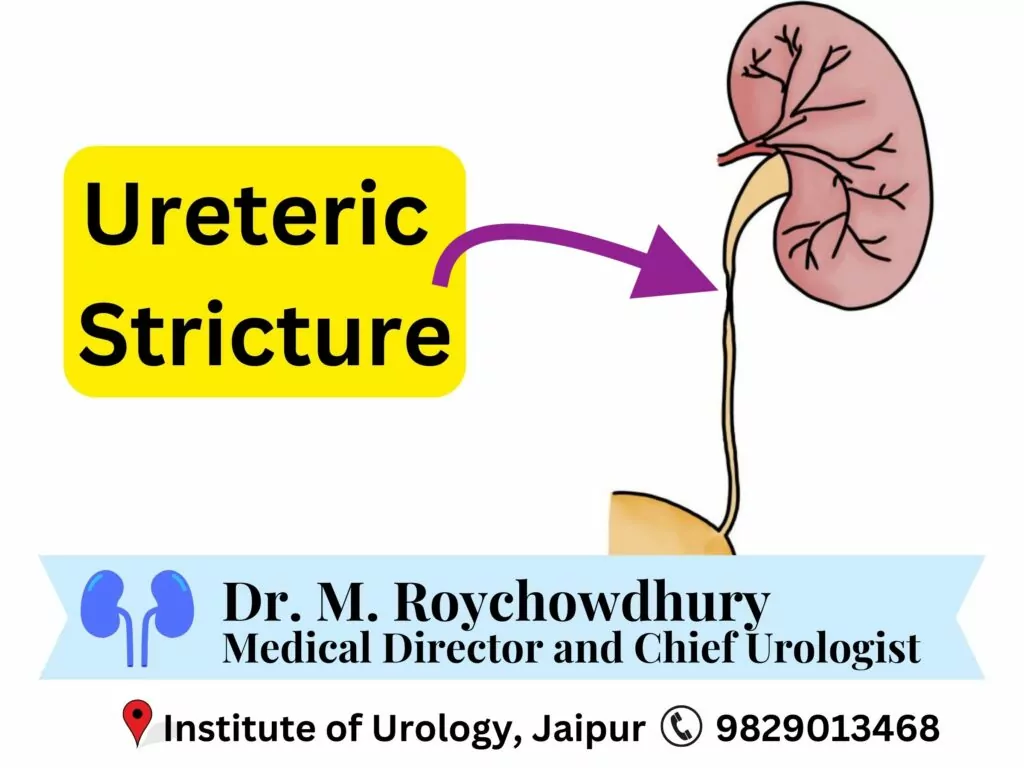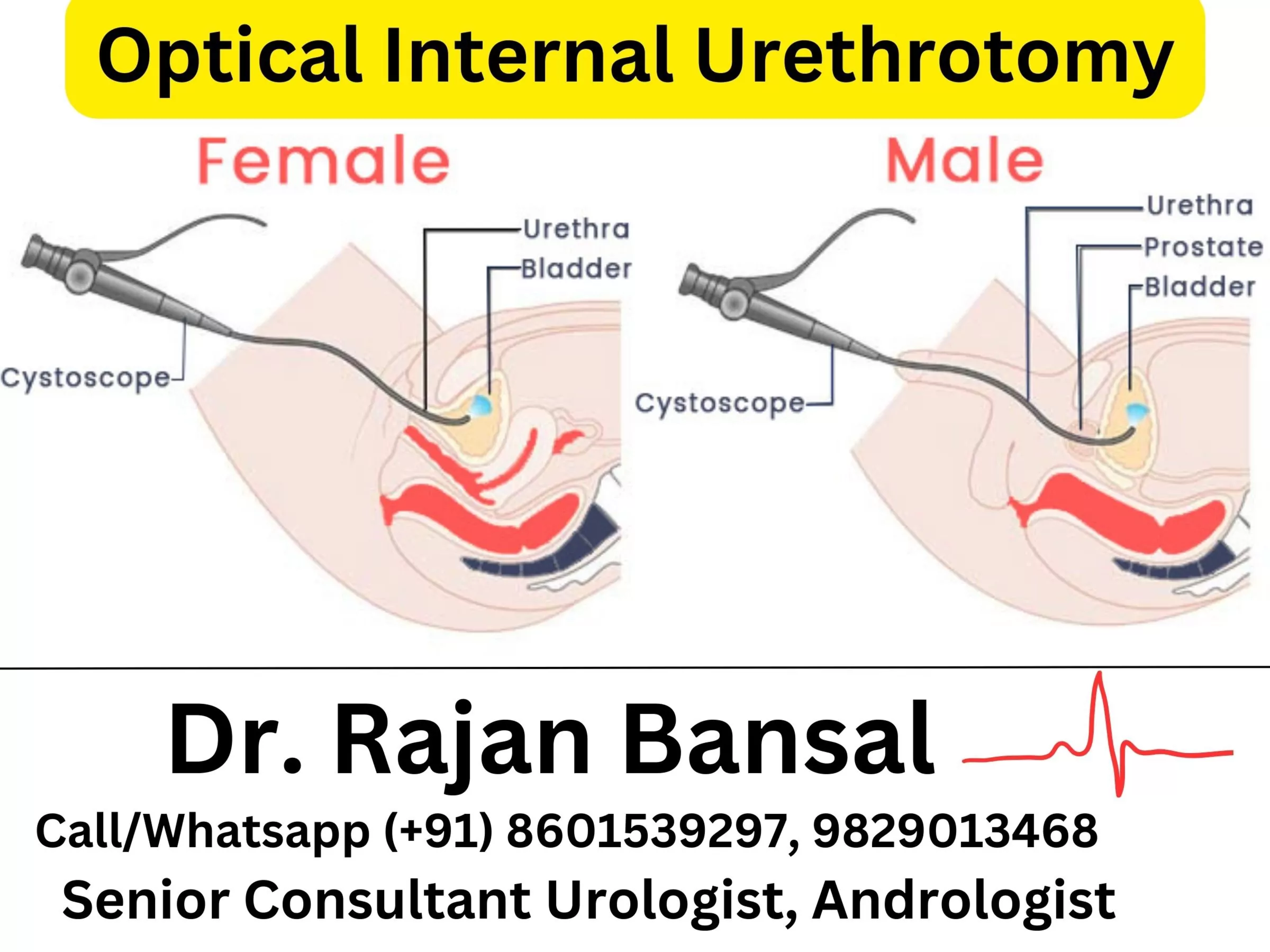Ureteric stricture, a condition characterized by narrowing of the ureter (a fine tube that connects kidney to the bladder), poses significant challenges in urological practice. With its diverse etiology and potential complications, understanding this condition is crucial for accurate diagnosis and effective management. This comprehensive article aims to elaborate the causes, symptoms, diagnosis, and treatment options available for ureteric stricture.

What Causes Ureteric Stricture?
Ureteric strictures can arise from various underlying causes, including:
- Inflammatory Conditions: Conditions such as ureteritis (due to stone), tuberculosis, or endometriosis (in women) can cause inflammation and scarring, resulting in ureteric strictures.
- Iatrogenic Factors: Surgical procedures involving the ureter, such as ureteroscopy, pelvic surgeries, or kidney transplantation, may inadvertently damage the ureter and predispose to stricture formation.
- Malignancies: Tumors originating from adjacent structures or metastatic spread can encroach upon the ureter, leading to compression and subsequent stricture formation.
What are the Symptoms of Ureteric Stricture?
The presentation of ureteric stricture can vary depending on the severity and location of the narrowing.Common symptoms include:
- Flank Pain: Persistent or recurrent pain in the flank region, often radiating towards the groin, may indicate ureteric obstruction.
- Recurrent Infections: Chronic obstruction can predispose individuals to urinary tract infections, presenting with symptoms such as fever, chills, and malaise.
How is the Diagnosis of Ureteric Stricture made?
Accurate diagnosis of ureteric stricture requires a systematic approach involving various diagnostic modalities:
- Imaging Studies: Radiological investigations such as CT Urography can provide valuable information regarding the location and extent of ureteric strictures.
- Retrograde Pyelography: It is an important invasive test which would provide exact location and extent of ureteric stricture.
What are the Treatment Options for Ureteric Stricture?
The management of ureteric stricture depends on various factors, including the etiology, location, and severity of the narrowing. Treatment modalities may include:
- Endoscopic Interventions: Endourological techniques such as balloon dilatation, ureteral stenting, or laser incision can effectively relieve ureteric strictures, particularly in cases of short or focal strictures.
- Surgical Reconstruction: Complex or long-segment strictures may require surgical reconstruction techniques such as ureteroureterostomy, ureteral reimplantation, ureteric reconstruction (Boari flaps) or autotransplantation.
- Medical Management: Adjunctive measures such as pharmacological therapy aimed at reducing inflammation or controlling underlying conditions like urinary tract infections, tuberculosis or malignancies may complement primary interventions.
Best Hospital for Treatment of Ureteric Stricture in Jaipur – Institute of Urology, C Scheme
Ureteric stricture represents a challenging urological condition with diverse etiology and clinical manifestations. Timely recognition and appropriate management are essential to mitigate potential complications and improve patient outcomes. A multidisciplinary approach involving urologists, radiologists, and other allied healthcare professionals is paramount in addressing the complex needs of individuals afflicted with ureteric strictures.
Institute of Urology, in Jaipur, stands as a preeminent center renowned for its comprehensive approach to treating ureteric strictures. With a multidisciplinary team of urologists, radiologists, and allied healthcare professionals, the institute offers a holistic and patient-centric approach to managing this complex condition. By integrating state-of-the-art diagnostic technologies and cutting-edge treatment modalities, including endourological techniques, surgical reconstruction, and medical management, the institute ensures tailored and effective care for each patient.
Now you can book an appointment over a phonecall for visit to the hospital at 9829013468 beforehand so that we can attend to you without any wait time. Online video consultation is available as well. You can discuss your query with Dr. Rajan Bansal ( 8601539297 ) or Dr. M. Roychowdhury ( 9929513468, 9829013468 ). At Institute of Urology, Jaipur, we ensure complete confidentiality and priority care.







